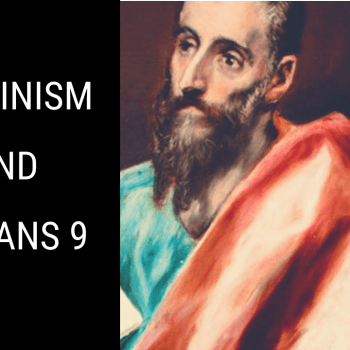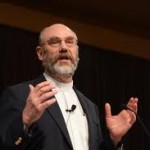Yes-the title of this post was taken from the oft repeated statement of Cardinal Newman after his conversion to Romanism “To be steeped in history is to cease being Protestant.” Though I am theologically far removed from the Roman Catholic church, I cannot help but be sympathetic to this sentiment. Though it is not a primary area I have discussed on my blog, a study of historical theology was as influential to my conversion as was my exegetical work.
The question I pose is this: Could the Church have been wrong about so many central elements of Christian theology and practice for 1500 years?
As a Reformed Christian, I would have to answer yes–though I was not willing to admit that the gates of hell had prevailed against the church.
As I began to read through the church fathers and medieval theologians, there were several things I quickly noticed.
First, baptism is always seen as a means of regeneration. From Justin Martyr, to the apocryphal gospels and acts, to Tertullian, to Irenaeus, to Augustine, through the middle ages, there has never been a major theologian who has regarded baptism as a symbol (nor as entrance into an external covenant with no real soteriological benefits). I still have been unable to find a single writer who understood baptism in any other way than regeneration prior to the reformation.
Second, it is always an assumption that a Christian can fall away from grace. It is a consistent theme in the apostolic fathers that the Christian must not quit running the race, or else his salvation will be lost. This again is echoed through out the centuries. Augustine himself, while acknowledging the perseverance of the elect, believed that many who were baptized and regenerate would fall away. Again, I have not found a single writer who taught otherwise.
Third, no one limited saving grace to the elect. Yes, there are elements of what would later be labeled “limited atonement” in the early Prosper of Aquitaine, Fulgentius of Ruspe, and Gottschalk, but none of these theologians denied that non-elect believers had true regeneration, thus saving grace, for a time. Baptismal grace is seen as a universal gift, given to all who are baptized, regardless of their election.
Finally, there is no “regulative principle of worship” in the early or medieval church. From the first century, the church functioned by means of liturgy. The church calender played a pivotal role in spiritual formation through out the second and third centuries. The church functioned under an episcopal system, without any outcry to the contrary. At least in the conservative RPCNA circles I have been a part of, it is seen as sinful to worship in any manner other than that which is directly commanded by scripture-which in this view is a Presbyterian form of government, exclusive Psalmody in worship, and no spoken or chanted liturgy. If this is the case, one must admit that there was no real worship service from 100 AD until Calvin’s Geneva.
These are only a few of the issues which I was unable to find in earlier church history; there are several more. If these, and other Reformed beliefs are true- how were they missed for 1500 years? Did everyone get it wrong? Did the Holy Spirit allow his church to fall into such error?
The history of the church is of course not an infallible authority as is the scripture. However, it should, if Christ’s promise is true, at least be taken as a reliable guide for Biblical interpretation. If one is to disagree with the tradition of the church, there had better be rock solid exegetical reasons for doing so. In this case-it does not seem that there are.











